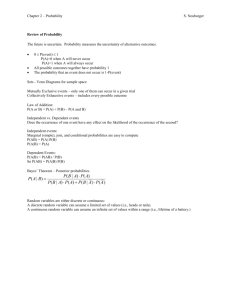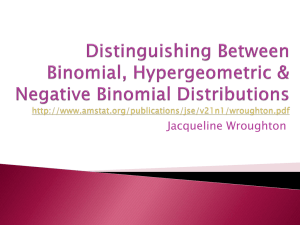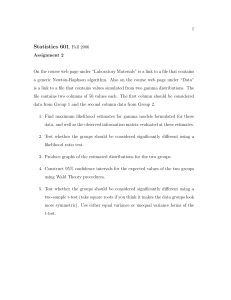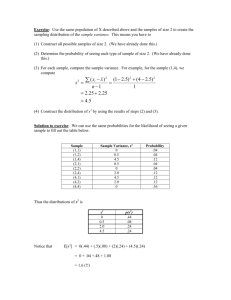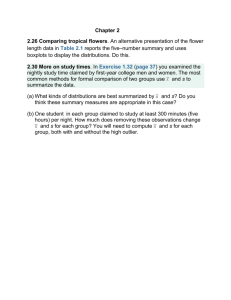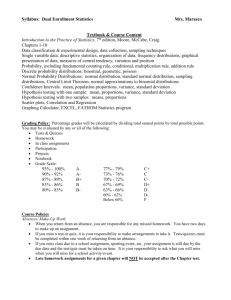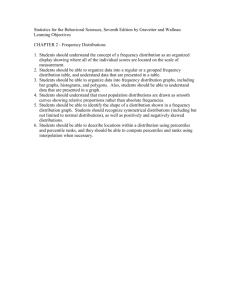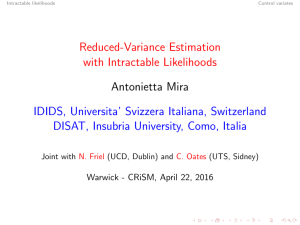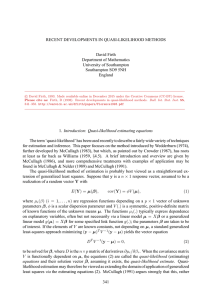Statistics 601: Advanced Statistical Methods Fall 2012
advertisement
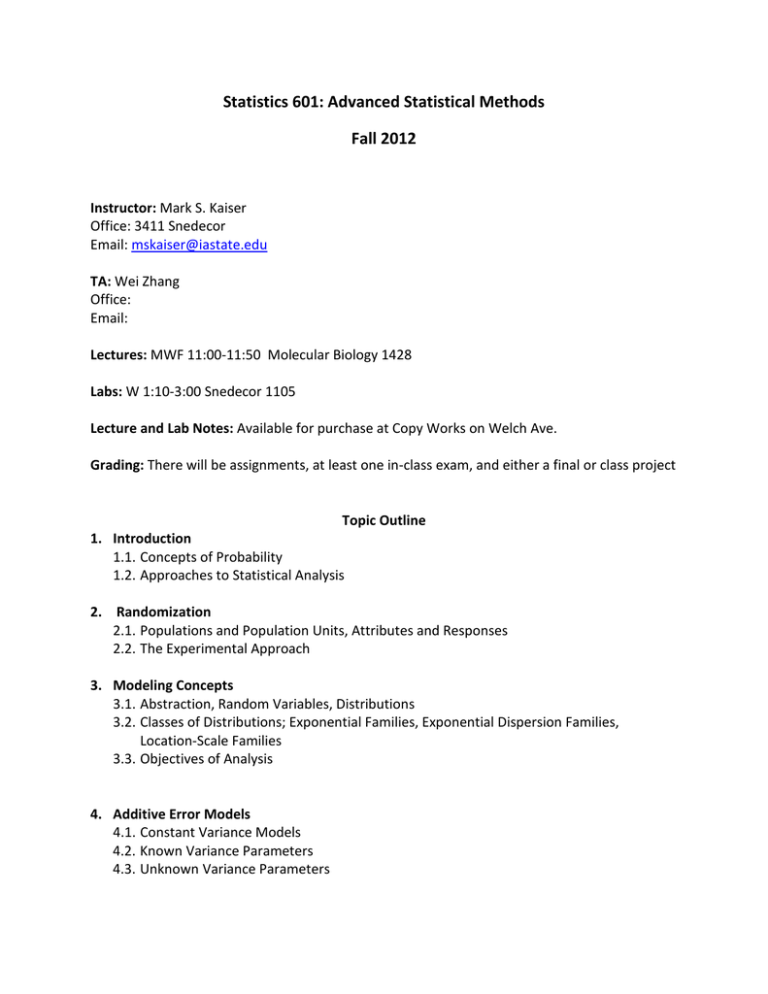
Statistics 601: Advanced Statistical Methods Fall 2012 Instructor: Mark S. Kaiser Office: 3411 Snedecor Email: mskaiser@iastate.edu TA: Wei Zhang Office: Email: Lectures: MWF 11:00-11:50 Molecular Biology 1428 Labs: W 1:10-3:00 Snedecor 1105 Lecture and Lab Notes: Available for purchase at Copy Works on Welch Ave. Grading: There will be assignments, at least one in-class exam, and either a final or class project Topic Outline 1. Introduction 1.1. Concepts of Probability 1.2. Approaches to Statistical Analysis 2. Randomization 2.1. Populations and Population Units, Attributes and Responses 2.2. The Experimental Approach 3. Modeling Concepts 3.1. Abstraction, Random Variables, Distributions 3.2. Classes of Distributions; Exponential Families, Exponential Dispersion Families, Location-Scale Families 3.3. Objectives of Analysis 4. Additive Error Models 4.1. Constant Variance Models 4.2. Known Variance Parameters 4.3. Unknown Variance Parameters 5. Models Based on Response Distributions 5.1. Random and Systematic Model Components 5.2. Generalized Linear Models 6. Models with Multiple Random Components 6.1. Mixed Models 6.2. Hierarchical Models 6.3. Latent Variable Models 7. Models Based on Stochastic Processes 7.1. Random Fields and Stationarity 7.2. Time Series Models 7.3. Markov Random Field Models 8. Basic Frequentist Estimation 8.1. Moment-Based Estimators 8.2. Least Squares 8.3. Basic Likelihood 9. Modified and False Likelihoods 9.1. Profile Likelihoods 9.2. Marginal/Conditional Likelihoods 9.3. Quasi-Likelihood and Estimating Equations 9.4. Pseudo-Likelihoods 9.5. Composite Likelihoods 10. Parametric Bootstrap 10.1. Comparison Functions and Bootstrap Basics 10.2. Basic and Percentile Intervals 11. Model Assessment 11.1. Residuals 11.2. Cross Validation 11.3. Simulation-Based Model Assessment 11.4. Issues in Model Assessment 12. Basic Bayes 12.1. Bayesian Paradigms 12.2. Sequential Bayes 12.3. Prior Distributions 12.4. Bayes Factors 12.5. Posterior Predictive Model Assessment 13. Simulation of Posterior Distributions 13.1. Fundamental Principles of Simulation 13.2. Basic Simulation Methods 13.3. Markov Chain Samplers – Metropolis and Gibbs 13.4. Monitoring Convergence Iowa State University complies with the American with Disabilities Act and Section 504 of the Rehabilitation Act. Any student who may require an accommodation under such provisions should contact the instructor as soon as possible and no later than the end of the first week of class or as soon as you become aware. No retroactive accommodations will be provided in this class. Please make sure that Disability Resources staff members send a SAAR form verifying the disability and specifying the accommodation needed. The Disability Resources office is located on the main floor of the Student Services Building, Room 1076, 515 294-7220.
